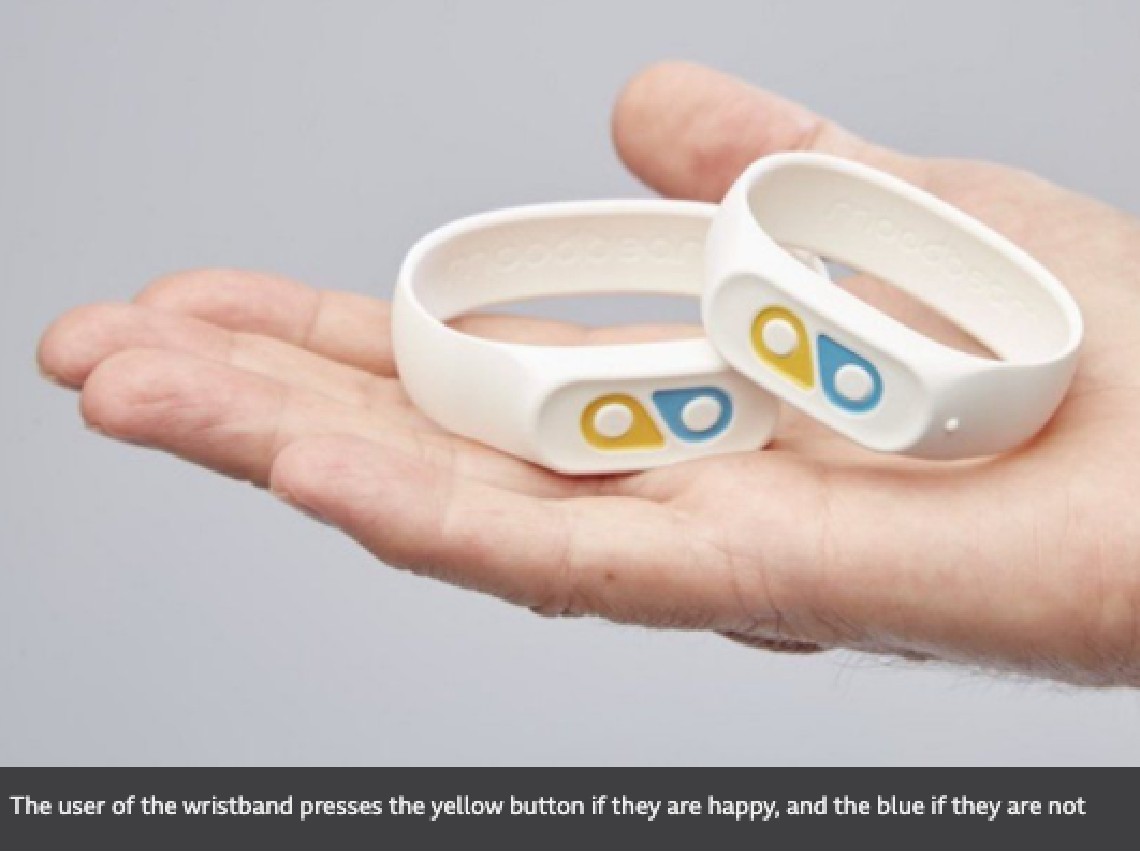Just Because You Can Doesn't Always Mean You Should

Last January I delivered a keynote training session to a group of young managers from a wide range of companies and organisations at the Next Generation Chamber. The session was called The Only Way Is Ethics and challenged thinking on a number of issues (you may even call them dilemmas) that they may face in their careers as business leaders. One year on, I’d like to challenge your views on what being an ethical leader really means.
The example I would like to use is one that appeared on the BBC News website last week. The graphic was the one used above with the headline, ‘A wristband that tells your boss if you are unhappy’. An interesting choice given the headline could easily have been something more positive such as ‘A wristband that tells your boss if you are happy’.
At this stage it is also worth noting that it is not the wristband that tells your boss how you are feeling i.e. the wristband is not able to provide a biological response (such as the amount of serotonin or cortisol you have in your system). Instead, the person has to make a cognitive response and press the relevant button (i.e. blue for sad and yellow for happy).
So, how would you feel about your teams using this wearable technology?
Here are some points to consider:
- How to you define ‘happy’ or ‘sad’?
- How do your team members define ‘happy’ or ‘sad’?
- Are the ‘happy’ or ‘sad’ emotions purely to be about work or can they include home circumstances too?
- During what time periods do you measure the data you will collect?
- How quickly will you and/or your managers respond to the data you are collecting?
- How will you publish the data you have collected?
As you consider the (unintended) consequences of using such wearable technology where you work you may develop even more questions of your own.
So, how does the introduction of wearable technology fit with the question of business ethics?
Firstly, I’d like to support the intention of this kind of initiative. Our own training company is founded on the strong principle that work is a force for good. We know, either intuitively or through academic research, that if people feel good about their work and who they work for then they generally perform at their best. So why wouldn’t you want to know if people are feeling ‘happy’ or ‘sad’?
However, apprehensions are these:
- Technology has given managers and organisations an insatiable appetite for data. However, any data collected needs to be just more than numbers. To be effective, data needs to provide actionable insights. How the data is collected, used and shared needs to be carefully thought through.
- Team members and managers using the technology will need to have a common understanding of what ‘happy’ and ‘sad’ really means. Very often these feelings are, by definition, subjective. Without clear definitions team members and employees may be at a misunderstanding e.g. a tiny issue making someone feel sad may appear to be a mountain rather than a molehill to a manager. Or indeed vice-versa.
- Will technology help or hinder those vital communication links between team member and their managers? With remote working even more prevalent these days, because of the pandemic, the need for checking-in (rather than checking-up) has become even more important.
- Like anything, this type of technology can be open to abuse and/or misrepresentation. For example, psychological safety is key at work and, by definition, the wearable technology cannot be anonymous unlike the employee surveys that many companies and organisations use to measure levels of employee engagement. In summary, if the feedback isn’t honest feedback, then who will be kidding who?
- Lastly, how will managers feel with data being pinged instantaneously from team members who are feeling ‘sad’? I imagine their own stress buckets may overflow. If so, this will make the whole enterprise counterproductive as these heightened stress levels could cause managers to behave in a way that detracts from the team members' employee experience.
My apprehensions are not without good reason. Last week I canvassed the views of managers and team leaders about this type of wearable technology who were participating on a number of our courses. After much discussion the overall view was a very strong thumbs down. The big challenge to this type of wearable technology was ‘What’s wrong with talking to your team and making sure you are approachable?’.
We all know and recognise that technology is a fabulous enabler. However, just because you can it doesn’t mean you always should.
Paul Beesley
Director & Senior Consultant, Beyond Theory

